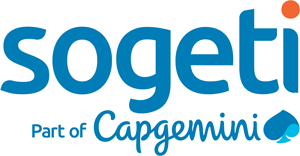Intelligent Enterprise: Highway to Hana
On the road to 2025.
We have all experienced digital disruption in our daily lives over the last 10 or so years. We now make calls by Skype and Facetime. We consume ‘on demand’ entertainment from Netflix, Itunes, and Youtube. When we shop from the comfort of our own homes we pay with PayPal and Apple Pay. This change is unstoppable, inescapable and, worryingly for businesses, its unplannable. Businesses have to become more agile and think differently to survive. We might have had a bit of a “grá” for Xtra-Vision, but no matter how much faster, cheaper or better they rented out DVDs, Netflix streaming came along and changed the game. This type of disruption requires companies to think differently about their digital eco-system.
The evolution of SAP
Most of the businesses I have worked with over the last 25 years have mainly used large ERP systems with Oracle and SAP products.
SAP in Ireland has a strong foothold with clients. This is not surprising with the amount of Pharmaceutical, Life Sciences, Medical devices and Agri food businesses in Ireland. These are industries where SAP had well established proven solutions. It also helps that SAP have over 1700 staff in Ireland, across their Dublin and Galway campuses.
These “more traditional” regulated product industries are now looking at what digital transformation means for them. SAP ERP is great at enabling standard processes but to build innovation into the product a lot of businesses would need to be “hacked” into the core or crudely bolted on. This then becomes a challenge for maintenance and upgrades. As businesses are becoming more dynamic and service orientated they need to rethink how SAP can support this change and provide the platform to drive their businesses continued evolution. This “Intelligent Enterprise” will need 3 key components:
- A digital platform
- Intelligent technologies
- An intelligent suite
This will allow for organisations to have a stable enterprise core which remains mission critical and have differentiation and innovation moved to outside the Enterprise Core, with flexibility achieved through agile integration and standardization.
While standard perception of SAP is that of a big ERP company, it has evolved into a company with approximately 3,300, mostly cloud enabled products of which only three or four are ERP. Its recent announcement of S/4HANA upgrade by 2025 also means it has evolved into a company that can offer the components above to support businesses to become “Intelligent Enterprises”.
What does this mean for CTO’s/CIO’s?
Lots of CTO’s/CIO’s will be looking at the benefits and innovation that a move to S/4HANA can bring. They will then remember the pain they went through the last time they were involved in a significant SAP ERP rollout. Make no mistake, to become the “Intelligent Enterprise” businesses are looking at implementations, not just the “upgrade”. Most can see the potential of S/4HANA one of the problems that CTO’s/CIO’s come to us with now is “How can I take this to my CFO in a way where they see the benefit?“.
To enable CTO’s/CIO’s to define the ROI, we recommended carrying out an assessment that would deliver:
- Recommendation of whether preconfigured solutions can be used to accelerate the move.
- Determination of the best deployment options – whether on-premise, on cloud, or a hybrid.
- Determination of the best deployment options – whether on-premise, on cloud, or a hybrid.
- Conducting prechecks on existing systems and landscape to identify potential issues ahead of the move to SAP S/4HANA®.
- Functional scope – determining if and how new SAP S/4HANA® innovations can be brought to bear in the implementation.
- Custom Code analysis – with custom code that may sometimes be more than two decades old, this comprehensive review looks at all the custom objects in the system and determines which ones would be appropriate to move to the next generation SAP systems.
This type of assessment allows for the preparation of a strong business case for the move outside of “we have to upgrade to stay in support”.
Living and breathing agile
Another area of concern for CTOs / CIOs is how they can use agile methodologies and show quicker return to the business, while still maintaining the control required for what will be a large, complex programme.
To do this, organisations need to understand that they need to live and breathe agile, and not just let it be another buzzword. Agile means they will be more involved and there will be more decision making required. I have previously seen where organisations flit in and out of involvement and just turn up at a sprint review session. That is not agile. By saying your doing agile while not switching how you engage and embed within the projects will only result in the worst of both worlds for the business.
To adopt agile, organisations will first need to consider what skills and roles will be required. Yes, you will need the agile practitioners, agile evangelists, scrum masters and product owners to support the changing implementation methodologies but the roles around the technology will also require change or additional skills. You may require cloud architects, Human Centric designers etc. The roles that then remain will need to add new skills. Technical Architects will need to understand API lead design, cloud, machine learning and dev ops. Functional consultants will need to apply design thinking to understand the business problem, what automation and AI is available how it can be best deployed and working closer with data & analytics consultants. I recommend organisations start thinking about their skill set now as the demand for the right resources will massively increase towards the 2025 deadline.
If you are starting to think about what this will mean for your organisation, Sogeti can help you to take the first concrete steps towards getting the right answers and solutions for your organisation.
+353 (0)87 933 2700

+353 (0)87 933 2700
 As a global SAP partner, we are one of the largest and most experienced SAP systems integrators. Our 17,500 SAP practitioners leverage Capgemini group's four decades of SAP experience to serve 1,300 clients around the world. With more than 3,500 certified resources, we’re Number 1 in SAP S/4HANA® certifications in Europe and Number 1 in SAP certifications overall.
As a global SAP partner, we are one of the largest and most experienced SAP systems integrators. Our 17,500 SAP practitioners leverage Capgemini group's four decades of SAP experience to serve 1,300 clients around the world. With more than 3,500 certified resources, we’re Number 1 in SAP S/4HANA® certifications in Europe and Number 1 in SAP certifications overall.

![[Missing text '/pageicons/altmail' for 'English']](/Static/img/email.png)